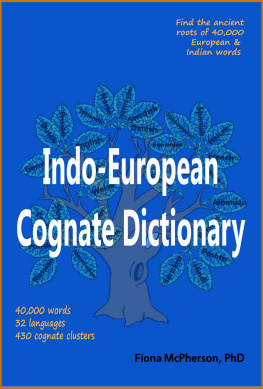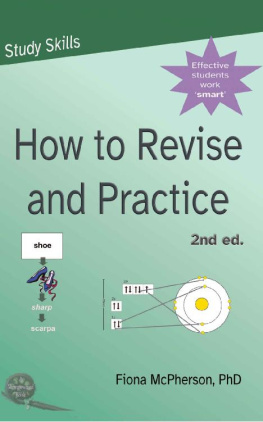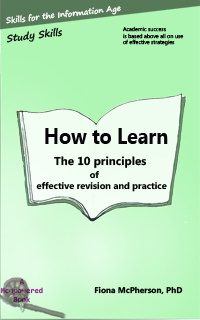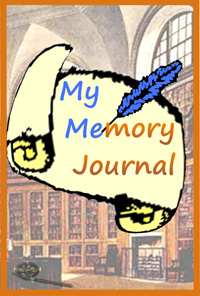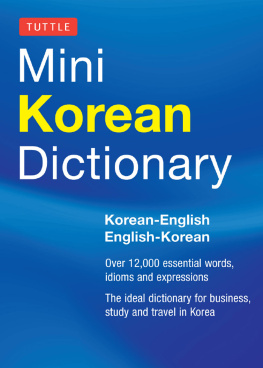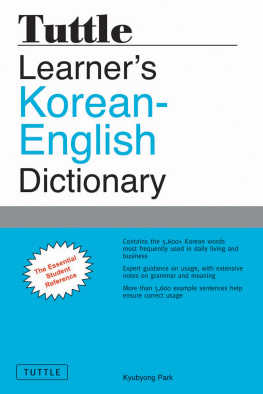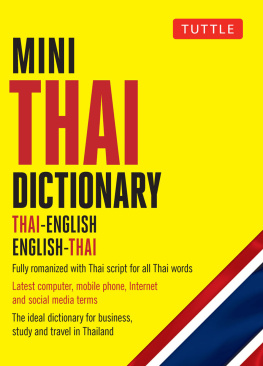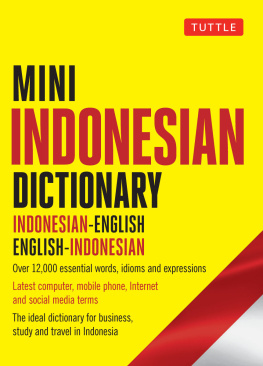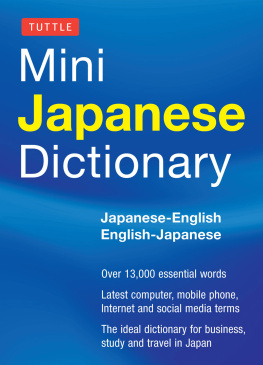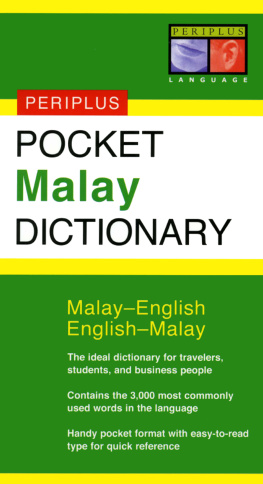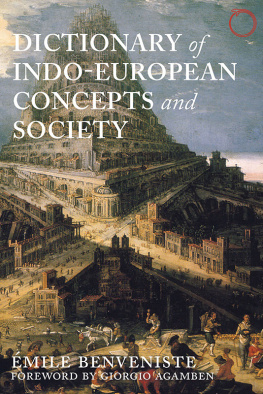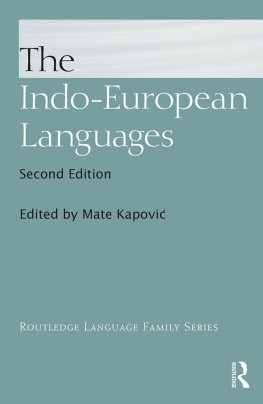Indo-European Cognate Dictionary
By Dr Fiona McPherson
www.mempowered.com
Published 2018 by Wayz Press, Wellington, New Zealand. Copyright 2018 by Fiona McPherson. All rights reserved. No part of this publication may be reproduced, stored in a retrieval system, or transmitted in any form or by any means, electronic, mechanical, recording or otherwise, without the prior written permission of Wayz Press, a subsidiary of Capital Research Limited. ISBN 978-1-927166-39-0 To report errors, please email errata@wayz.co.nz For additional resources andup-to-date information about any errors, go to the Mempowered website at www.mempowered.com
Also by Fiona McPherson
Easy Russian Alphabet: A Visual Workbook Mnemonics for Study (2nd ed.) Mnemonics for Study: Spanish edition Mnemonics for Study: Italian edition My Memory Journal Successful Learning Simplified: A Visual Guide How to Learn: The 10 principles of effective practice and revision Effective Notetaking (3rd ed.) How to Approach Learning: What teachers and students should know about succeeding in school Planning to Remember: How toremember what youre doing and what you plan to do Perfect Memory Training The Memory Key
About this dictionary
I conceived of this dictionary through my experiences at learning other languages. Ive always had a fascination with other languages, and have dabbled to varying degrees in German, Spanish, French, Latin, ancient Greek, Italian, Russian, Japanese, and Mandarin.
This gives me a head full of words that I cant always tag to the language they belong to! Knowing that most of them derive from a single long-ago language that scholars call Proto-Indo-European, I started to wonder how a knowledge of that language would benefit the learning of its offspring languages. Then I started listening to a wonderful podcast on the History of English, which began right at that point, and told me fascinating things such as how infant, infantry, professor, and profane are all related (through *beh2-, to speak, as it turns out). If you agree with me that this sort of thing is fascinating, youll enjoy this dictionary! However, the primary purpose of this dictionary is to help people make connections between words, and thus remember them. Vocabulary is a sticking point for many language learners. Thats because words have a certain arbitrary quality that makes them hard to memorize. There are two strategies which are very effective with this task: the keyword mnemonic, and retrieval practice.
I have written about these extensively in my books Mnemonics for Study, and How to learn: The 10 principles of effective revision & practice. But you need thousands of words to have any degree of fluency, and youll be much quicker to reach that level if you dont have to apply these strategies to all words. Which is where we come to the relative ease of learning different languages. One of the main factors determining the ease or difficulty of mastering another language is the degree to which it shares vocabulary with the language(s) you know. By share, I dont mean that they necessarily have the exact same words. Rather, it has to do with cognates words that share the same linguistic root.
Some of these are glaringly obvious: Spanish importante / English important; French authentique / English authentic; German Apfel / English apple; Dutch mixen / English mix; Iceland eyland / English island. But many, many others are not so obvious. The aim of this dictionary is to collect many of these cognates, so that we can see what words are cognate, and (because it would be a huge job and a mammoth dictionary to gather all cognates in all Indo-European languages), to help you learn how to recognize cognates. You may wonder how much this will help you remember the words, if the relationship between the words is not transparently obvious. But trust me, recognizing the relationship, seeing it every time you come across the word, will help you immeasurably.
Introduction
This introduction explains how the dictionary is organised, what languages are covered, and any abbreviations that are used.
Introduction
This introduction explains how the dictionary is organised, what languages are covered, and any abbreviations that are used.
It also describes some of the linguistic patterns to look out for.
What languages are covered in this dictionary?
The Indo-European language tree has nine living branches, and this dictionary records words from 32 languages, covering eight of these branches (the ninth branch is Armenian, consisting solely of the Armenian language; its paucity in my sources led me to exclude this). Four of these languages are technically not living, but because of their importance in the development of living languages, as well as (in the case of three of them) their continued use in the reading of ancient texts, they have been included. These are: Latin, Ancient Greek, Sanskrit, and Norse. Note that, while the vast majority of Latin words are from Classical Latin, some are from Medieval Latin, Vulgar Latin and Late Latin. I have not distinguished these.
Because the dictionary is in English, and is aimed especially at English native speakers (although others will find it useful too indeed, those learning English may find it the most useful), Germanic and Romance languages are covered far more completely than other fruitful branches. English comes from the Germanic branch, but because of the Norman invasion and the centuries under Norman French rule, has been greatly influenced by French and Latin. So in the case of the Germanic and Italic branches, descending words have been covered in much more depth. The Celtic, Slavic, Baltic, Albanian, and Indo-Iranian languages are covered much more sparsely, the main intention being to display the breadth of the cluster, as well, of course, as providing a basis and a springboard for those wanting to learn any of those languages. The Hellenic branch is a special case. Because Ancient Greek greatly influenced Latin, and influenced English both directly and indirectly (many of our scientific and technical terms come directly from Greek), that language is covered in more depth; however, its daughter language modern Greek is only covered lightly.

